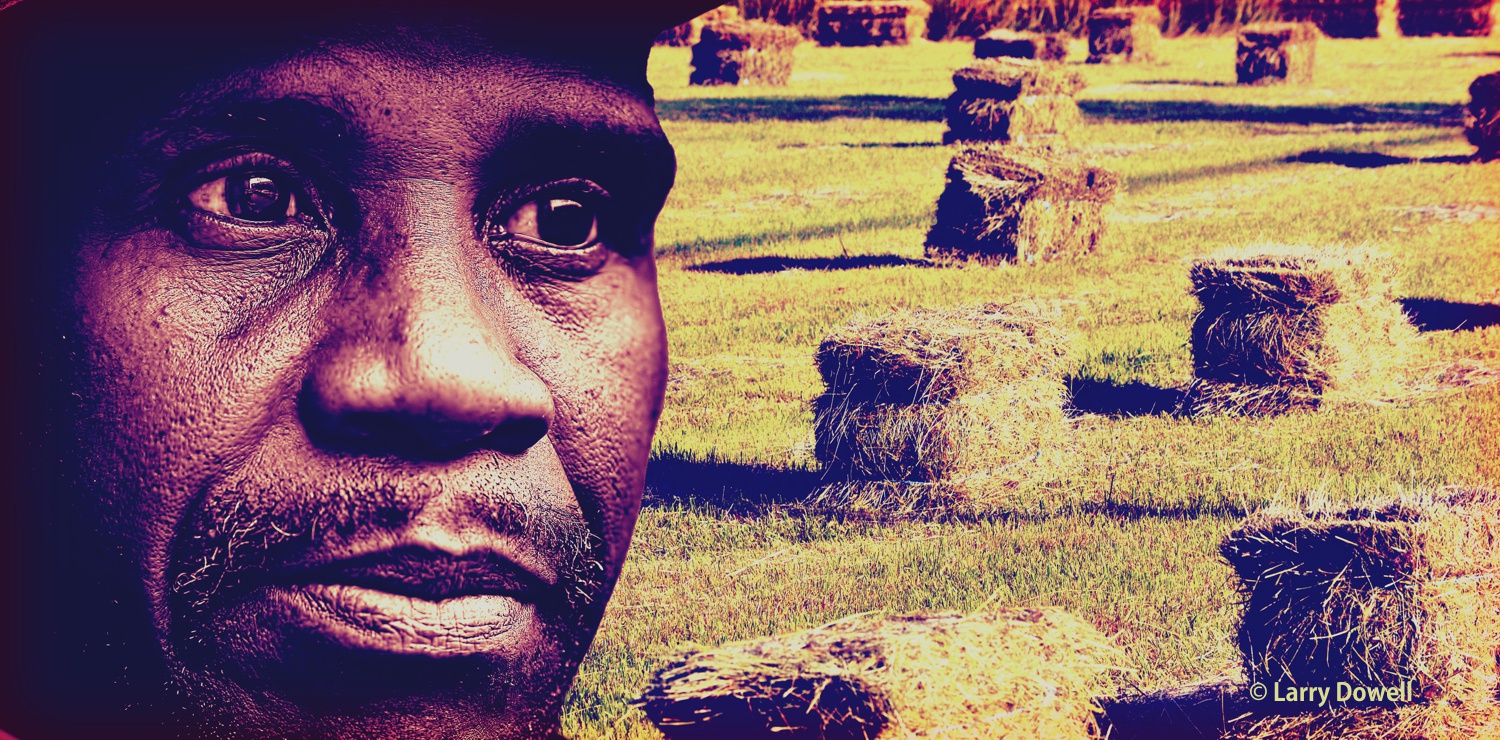 The rural farming area in Kentucky where I am from had been very diverse in my grandparents’ time and before. All that had changed when I was growing up; by then, there was only one Black person living in the community. He was Brady Gaines and he was a distant cousin. What was remarkable about him, for me, was not that he was the only Black person in the community. He lived alone and was known to have women over to stay the weekend and to drink. What I naively thought was, “Wow, he’s living like James Bond.”
The rural farming area in Kentucky where I am from had been very diverse in my grandparents’ time and before. All that had changed when I was growing up; by then, there was only one Black person living in the community. He was Brady Gaines and he was a distant cousin. What was remarkable about him, for me, was not that he was the only Black person in the community. He lived alone and was known to have women over to stay the weekend and to drink. What I naively thought was, “Wow, he’s living like James Bond.”
One year we had a very rainy spring, which meant a bumper crop of hay in the summer. The hay had been mowed, left in the field to dry out, then raked into windrows and baled. When it was time to haul it in, my father hired Brady to help. Daddy drove the tractor pulling the flatbed hay wagon. As the tractor crept along, two people walked the field, lifting the hay bales onto the wagon. Brady and I were on the wagon, stacking the bales as they were loaded.
I had just turned thirteen and was nearing six feet tall and thin, weighing no more than 120 pounds. Brady was a decade older than my father and was taller than me. I looked like the skinny nerd with black rimmed glasses that I really was and Brady looked like a fit retired athlete. I’m sure we were an incongruous sight working together on that wagon.
As soon as a hay bale was set on the wagon, I rushed to grab it and get it stacked. Then I rushed back to the side of the wagon to be ready for the next one. The bales weighed 60 or 70 pounds each and I was soon out of breath. Brady worked steadily and methodically. After a short time of watching me, he stopped me and said, “Son, you gotta pace yourself. It’s gonna be a long day.” Of course, he was right. I slowed down, matched his pace and we started working as a team.
We stacked the bales nine feet high, criss-crossing them to stabilize them for the ride across the rough field. When the wagon was full, we headed to the barn to unload it. The wagon pulled up under the door of the barn loft and we started unloading the hay. That became more and more difficult, because the lower the stack of hay on the wagon became, the higher we had to lift and swing the bales to get them up into the loft. Brady had to do the last few bales, because I just didn’t have the strength and reach to get them up. Once the wagon was unloaded, we headed back to the field to repeat the process, over and over. It was an absolutely exhausting day.
When lunchtime came, we returned to the house. My mother had a big meal cooked and ready for us: fried chicken, mashed potatoes, green beans, boiled corn, sliced garden tomatoes, cornbread, pies and other treats. Brady filled his plate, got his iced tea and said, “I’ll just take my plate outside to eat.”
The Civil Rights movement was still going on then and Black people were being assaulted and murdered across the country for standing up for their rights. Racism and bigotry were rampant. I followed the news and was horrified by what was being done to marchers and demonstrators. Still, it had all seemed foreign and distant from my own secluded life. That is, until Brady had said, “I’ll just take my plate outside to eat.” That one sentence brought it all right into the room with us.
Without a moment’s hesitation, my father took his arm and said, “No, Brady, you eat with us.”
I had watched Brady’s face as my father spoke. He did not show relief or thankfulness or humility for the acceptance. It was the look a teacher gives when a tough question is answered correctly. My father had given the right answer.
I don’t remember much of the conversation during the rest of the meal. It was just one of countless family gatherings, unremarkable, except for that one moment. And that moment has stuck with me, not because of what my father said, although I am proud of him for being the person he was. It was the look in Brady’s eyes, prepared for the wrong response, accepting of the right one.
That was the moment when racism and bigotry became very real to me, because a lifetime of their effects showed in Brady’s eyes. I cannot speak for Black experience, and I wouldn’t presume to try to do so, but I did get a glimpse of it that day. That brought an acute awareness of racism and bigotry that has stuck with me all my life.
That made his advice to me even more touching and personal. I realized he had already lived a lifetime by that wisdom. “Pace yourself. It’s gonna be a long day.”